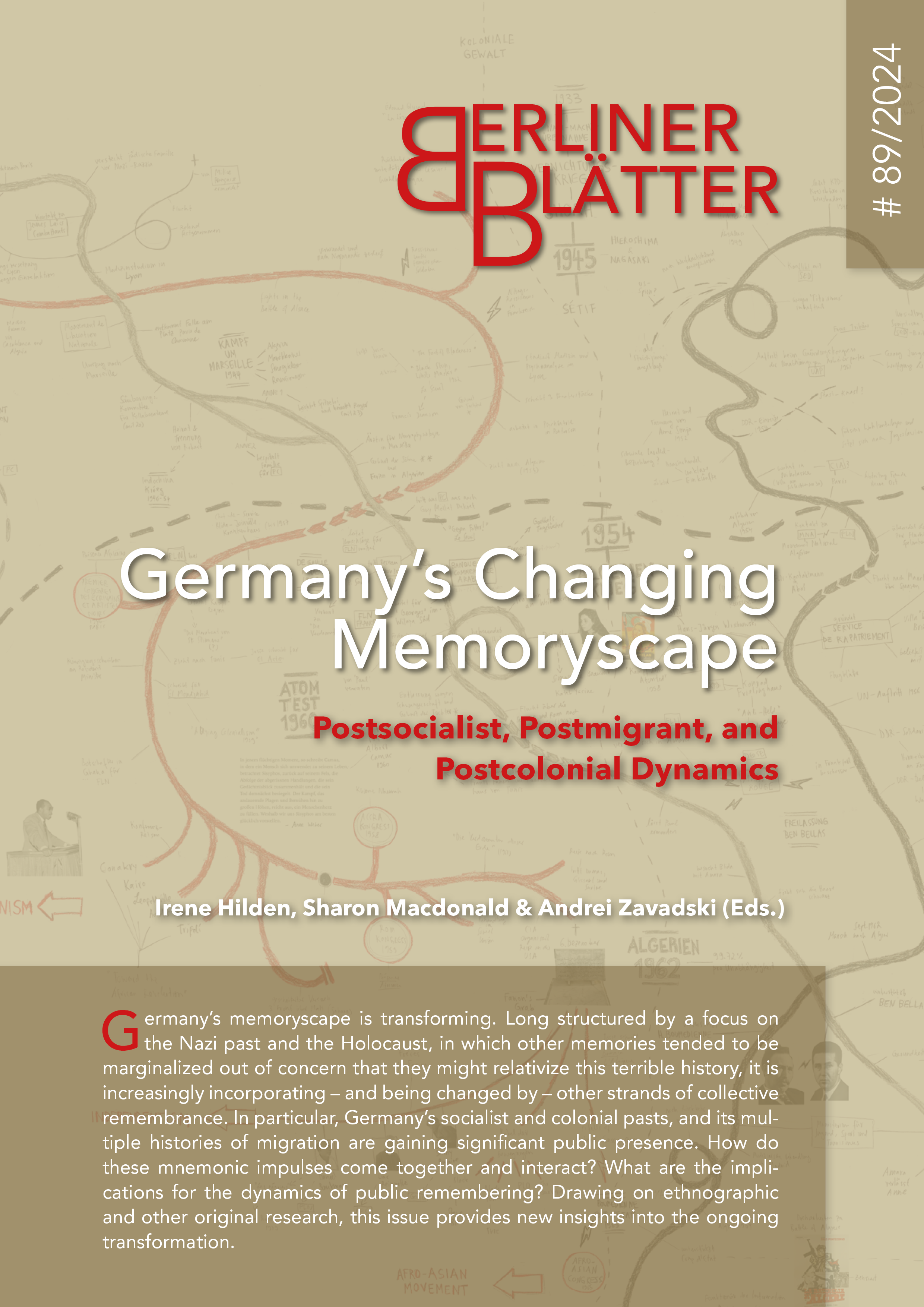Inclusive Remembering as a Practice of Research and Writing
On the Making-Of of a Book
DOI:
https://doi.org/10.18452/28734Keywords:
inclusive remembering, multidrectional thinking, victim hierarchy, writing, world memoryAbstract
Published by Propyläen in Berlin in 2022, Charlotte Wiedemann’s book Den Schmerz der Anderen begreifen. Holocaust und Weltgedächtnis (Grasping the Pain of Others. Holocaust and World Memory) translates multidirectional thinking into a practice of research and writing. This article reflects on the book’s genesis and writing process at a distance from its publication and initial reception phase. What can be done to counter the sometimes frustrating political debate on remembrance in Germany, in which it has hardly been possible to think together different histories of violence and to do so with solidarity and sensitivity? How can the interconnections between historical events and their traces extending into the present be highlighted and made tangible for readers? Inclusive remembrance is understood as a practice that functions beyond victim hierarchies and instead makes a world memory negotiable. The book’s methodology of relating different research materials, perspectives, and the author’s own references to one another is also reflected in this contribution, which combines excerpts from the book with reflections by its author.
Downloads
Published
How to Cite
Issue
Section
License
Copyright (c) 2024 Berliner Blätter

This work is licensed under a Creative Commons Attribution-NonCommercial-ShareAlike 4.0 International License.








